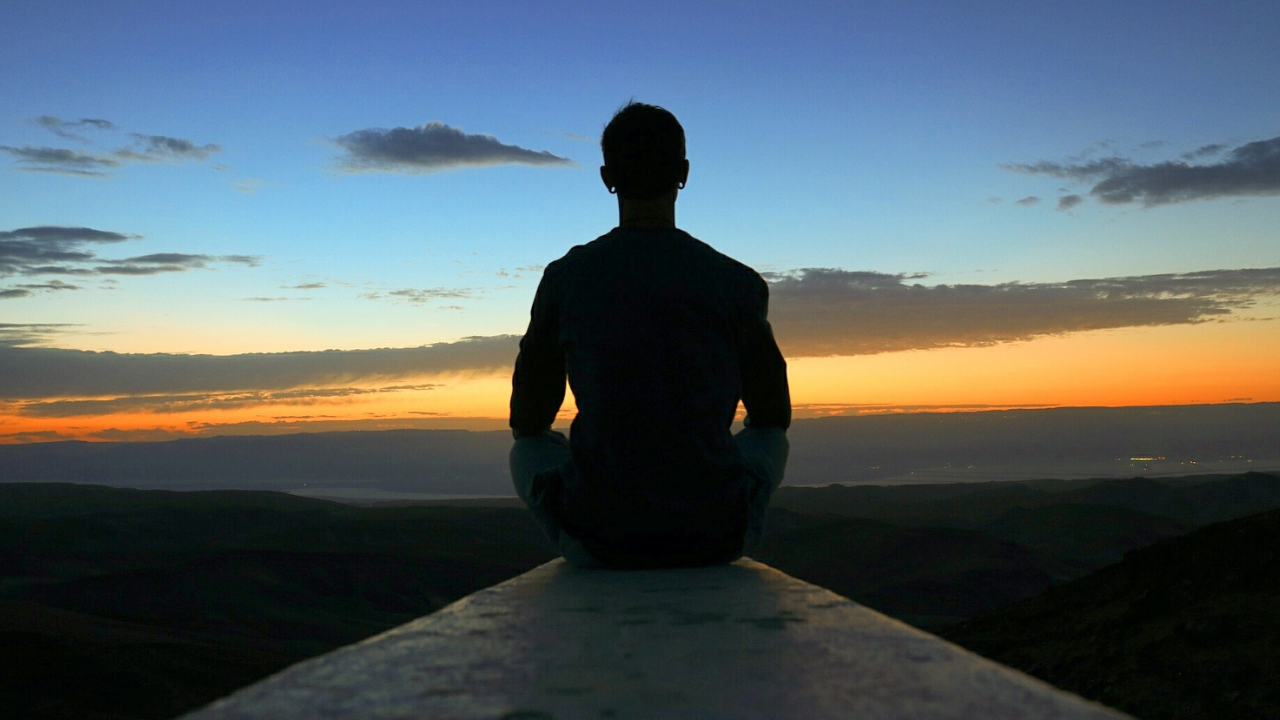Season Special: Benefits of Forest Bathing
This special episode for Season 7 features a narrative from educator David Stepanczuk, who shares his journey from the challenges of finding work in Japan to discovering the practice of forest bathing (shinrin-yoku) for stress relief.
Key talking points
✅ Discovering Forest Bathing: David recounts the pivotal moment during a trip to Nara Park, where the expansive forest and tame deer provided a sense of relaxation and rejuvenation. He later experienced the need for a break during a hectic teaching schedule, leading him to discover forest bathing or shinrin-yoku.
✅ Forest Bathing Benefits: David describes forest bathing as a slow and immersive experience, distinct from hiking. He emphasizes its role in clearing the mind, promoting relaxation, and its potential for alleviating teacher fatigue.
✅ Personal Observations: David shares his observations on the benefits of forest bathing, including reduced blood pressure, increased energy, and enhanced focus.
References & Resources
Association of Nature and Forest Therapy. Available here. Accessed on 2 Jan 2024
Stepanczuk, D. (2020) How PAC Almost Got Me. Available at MIND BRAIN EDUCATION. Accessed on 2 Jan 2024
Stepanczuk, D. (2023) Meditation and Incense: How I Meditate, and Teacher Fatigue. Available on LinkedIn here. Accessed on 2 Jan 2024
Watch the video with closed captions or refer to the transcript below.
Transcript
00:00:00:01 - 00:00:32:08
Laura
TESOL Pop Season seven, special episode. Hi, it's Laura here. Welcome to this special episode of the TESOL Pop Podcast. We hope you've enjoyed season seven. In fact, 2023 has been our biggest year yet. So thank you to you, our listeners and our wonderful guest for making it possible to help more educators discover us. You can leave a rating and review wherever you listen to the podcast like this lovely review, that leaning 21 left on Apple Podcasts that says: Love the small chunk nature of the show.
00:00:32:14 - 00:01:01:22
Laura
Great for ESL teachers and yet so much content is relevant to a wider teaching audience. We're really happy to hear this, so thank you very much for taking the time to leave that review. Now, if you've been following us for a while, you'll know that we like to do something different in our season specials. So today you will hear from teacher David Stepanczuk, who shares his story from his early days teaching in Japan, and how a school trip to Nara Park introduced him to the practice of forest bathing.
00:01:01:24 - 00:01:27:22
Laura
This is a practice where we spend time in nature in order to relax something that's really important for us educators. David was inspired to share his story in response to Adrian Bethune’s episode, where he talks about Stress Management Strategies for Teachers. Before we dive into David's story, let's cast our minds back to Adrian, where he talked about the importance of building a bank of active responses to stress.
00:01:27:24 - 00:01:48:16
Adrian
So one thing that we can do is and this is an activity it's a good to do when things are calm, is literally reflect on what are the things, what are the activities that I know nourish me, re-energise me, increase my sense of perspective, or just generally make me feel glad about being alive. And literally writing them down.
00:01:48:18 - 00:02:14:19
Adrian
So mine would be going for a walk in nature, playing football. I played football last night with a group of friends, cooking, meditating for me, journaling, talking with people I trust, going out for some drinks or some food with with friends, you know, just make a list. So that's one thing we can do. You've got you've got a bank then of activities, you know, work for you that are active responses to stress.
00:02:14:21 - 00:02:28:00
Adrian
The second thing we can do with those bank of activities is start to think, how can I weave these into my habits and my routines? So I so that I am just doing these things every day and every week.
00:02:28:02 - 00:02:38:17
Laura
Identifying active responses to stress is exactly what David shares in his story. Let's hear from David and how forest bathing became part of his wellbeing routine.
00:02:38:19 - 00:03:06:22
David
I came to Japan in 1991, quite literally a Reaganomics refugee. I was an arts major and was finding it an increasing really difficult to get any worthwhile job in the arts. And finally I realised it would only get worse as the eighties wore on. Armed with a small ESL certificate, I made my way to Japan. Once here it was sink or swim.
00:03:07:01 - 00:03:33:07
David
I had only $2,000 to my name. Once that ran out, I'd be forced to go back home. Every day I pounded the pavement looking for work in Osaka. I finally found two very small jobs at cram schools and began working. That was in January. By March, that was all I was doing. Looking for better work and working those two small jobs.
00:03:33:09 - 00:04:02:20
David
Then in March, my cram school boss invited students and me to Nara Park, a huge, sprawling forest with a thousand tame deer. Once there, I could feel something come over me, a washing over me of relaxation and calm. I realised this is what I'd been missing for the past three months. I was re-energised by the end of the day and could function better.
00:04:02:24 - 00:04:33:09
David
Four months later, in the heat of August, I was walking to another teaching gig when all of a sudden I felt light-headed and saw stars in front of my eyes. I had to sit down on the kerb in the street. I sat there and wondered what was going on. I did some quick calculation when I realised I'd taken one private lesson after another and had worked for about 100 days in a row without a break.
00:04:33:11 - 00:05:01:12
David
I went to a leafy temple nearby and took a break. That's how I discovered forest bathing. When I feel I need a break or de-stressing. I don't tell myself, Let's do some shinrin-yoku [forest bathing]. It's not that level of dedicated corniness to a specific method. I simply think it's time for a break. Go to a nearby hiking trail, get in the woods and stand there.
00:05:01:14 - 00:05:33:21
David
It's soothing and comfortable just standing there doing that. Some people do it in a contemplative way, a kind of walking meditation. Some seem to be able to use it to be creative and do problem solving. I feel that misses the point. Forest bathing is an escape clearing of the mind. For me, it's a total immersive and visceral experience letting the forest air fill my lungs and wash over my body.
00:05:34:02 - 00:06:01:06
David
Does the trick. Also, forest bathing is not hiking. It's much slower, even standing still and just letting the atmosphere and microclimate of the forest hit you, wash over you, clean you as the point of the matter. It's the destination and the healing effect on the body and not the journey that counts. You can share the experience with a person or a small group.
00:06:01:08 - 00:06:40:05
David
Some seem to think that a forest therapy guide is necessary. For me, I can easily do it by myself. It's not rocket science. It's having this simple sensitivity to feel the atmosphere around you and appreciate it. The Association of Nature and Forest Therapy lists manifold benefits, including a reduced blood pressure and increased energy and increased ability to focus. For me, the best part about forest bathing is that you can do it in a forest preserve near you for free.
00:06:40:07 - 00:07:04:00
David
These are my observations about forest bathing and how it can alleviate teacher fatigue. I want to thank Laura Wilkes and TESOL Pop podcast for this opportunity to voice my opinions on this interesting and healthy topic. This was the very first time I was a guest on any podcast, and I hope everyone enjoyed it.
00:07:04:02 - 00:07:31:15
Laura
Thank you to David Stepanczuk for sharing your story. If you'd like to learn more about forest bathing and follow David's work, then I've included links to articles and publications for you to check out. We'll be back on January the 16th with a fresh season of TESOL Pop. Kicking off season eight is Ian McMaster who’ll be talking about his latest book and how reflecting on critical incidents can help build stronger teaching teams.
00:07:31:17 - 00:07:50:13
Laura
Until then, you can follow us on socials for updates or participate in What We're Reading, our virtual book club, where Rebecca Eller-Molitas and I share our latest reads and how we can apply them to our work as educators and entrepreneurs. As always, all those details are in the show notes. So until then, happy listening.
You might also like
Good to know
This blog space and its associated multimedia content contain affiliate links. To learn more about how affiliate links work, please read our disclaimer here.




This special episode features a narrative from educator David Stepanczuk, who shares his journey from the challenges of finding work in Japan to discovering the practice of forest bathing (shinrin-yoku) for stress relief.